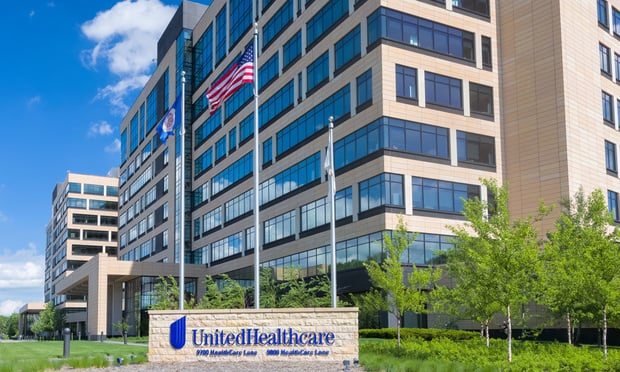 Supporters ofthe tax reason that it's a sensible means of raising revenue tosupport the health system that the same insurers are using togenerate profits. (Photo: Shutterstock)
Supporters ofthe tax reason that it's a sensible means of raising revenue tosupport the health system that the same insurers are using togenerate profits. (Photo: Shutterstock)
A fee on health plans that Congress voted last year to suspendwill cost the insurance industry $15.5 billion if it goes back intoeffect next year, according to an IRS analysis.
|The Health Insurance Provider's Fee was included in theAffordable Care Act to fund setting up state and federal ACA marketplaces. The fee is based on aninsurer's share of the market, which is calculated based on eachinsurer's net premiums for the year.
|Congress has had a fraught relationship with the tax, suspendingit in 2017, allowing it to go back into effect in 2018 and thensuspending it again in 2019. Unless Congress acts, it will go intoeffect again next year.
|Related: Maryland seeks to tax insurers to protect ACAmarket
|Supporters of the tax reason that it's a sensible means ofraising revenue to support the health system that the same insurersare using to generate profits.
|Unsurprisingly, insurers are vehemently opposed to the tax.AHIP, the top insurance lobby group, warns consumers the tax willincrease premiums by $7,000 over the next decade for familiesgetting coverage from small employers.
|"The health insurance tax is a $100 billion+ sales tax on healthinsurance that hits nearly everyone, increasing the cost of healthcoverage for individuals, small businesses, seniors, states, andtaxpayers," says AHIP on its website. "AHIP will continue to pushfor a full repeal of the health insurance tax because it makeshealth care less affordable for the very people who need the mosthelp affording health care."
|Similarly, UnitedHealth commissioned an analysis by Oliver Wymanthat concluded the tax would result in a 2 percent increase inpremiums for policyholders.
|While analysts expect health plans to pass the cost of taxesonto consumers, supporters of the tax hope that a competitivemarketplace will force insurers to cut into profits, rather thanraise premiums.
|Earlier this year, S&P analyst Deep Banerjee told ModernHealthcare that competition was so fierce in the Medicare Advantagemarket that insurers will be reluctant to raise premiums, even ifit means reduced profits.
|Read more:
Complete your profile to continue reading and get FREE access to BenefitsPRO, part of your ALM digital membership.
Your access to unlimited BenefitsPRO content isn’t changing.
Once you are an ALM digital member, you’ll receive:
- Critical BenefitsPRO information including cutting edge post-reform success strategies, access to educational webcasts and videos, resources from industry leaders, and informative Newsletters.
- Exclusive discounts on ALM, BenefitsPRO magazine and BenefitsPRO.com events
- Access to other award-winning ALM websites including ThinkAdvisor.com and Law.com
Already have an account? Sign In
© 2024 ALM Global, LLC, All Rights Reserved. Request academic re-use from www.copyright.com. All other uses, submit a request to [email protected]. For more information visit Asset & Logo Licensing.








